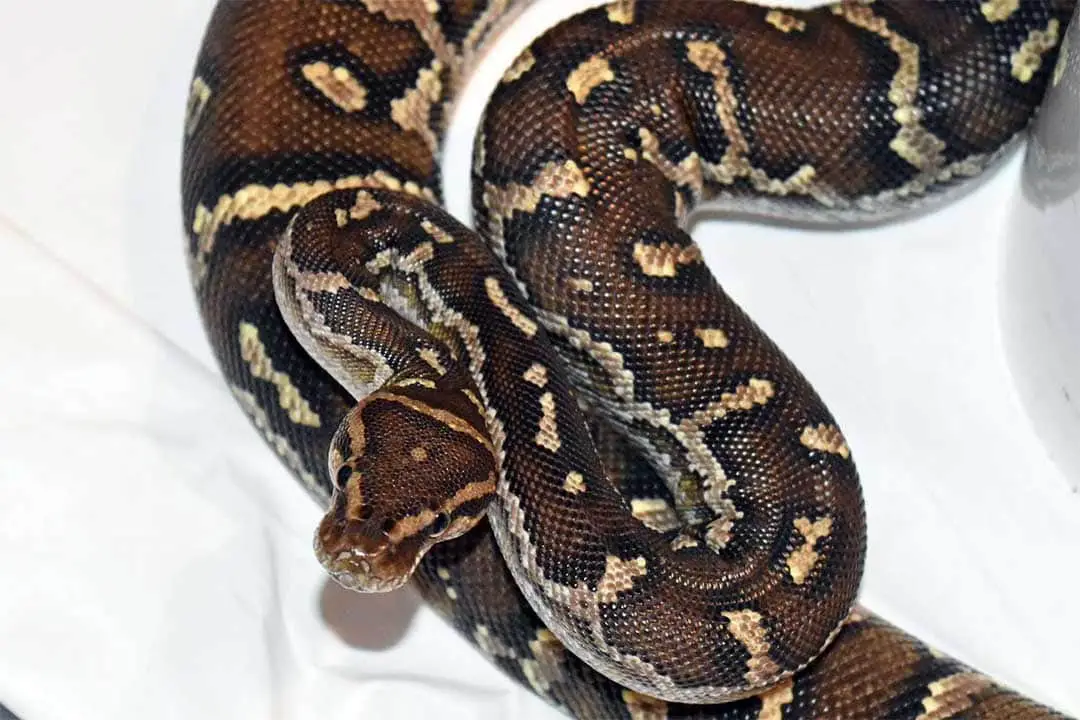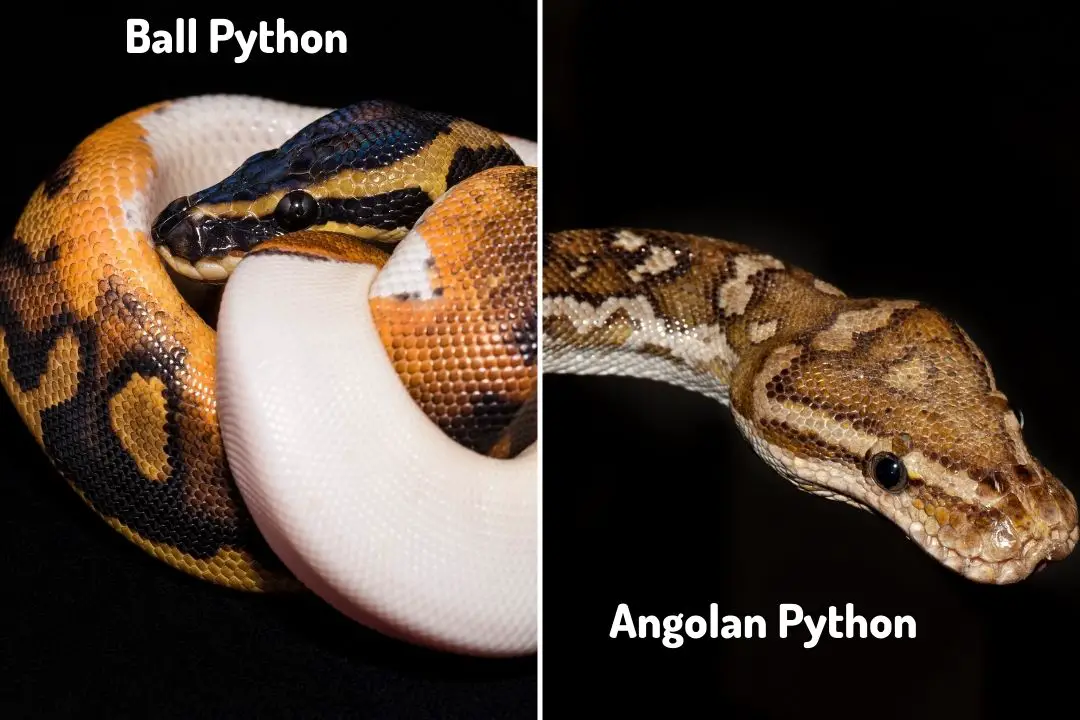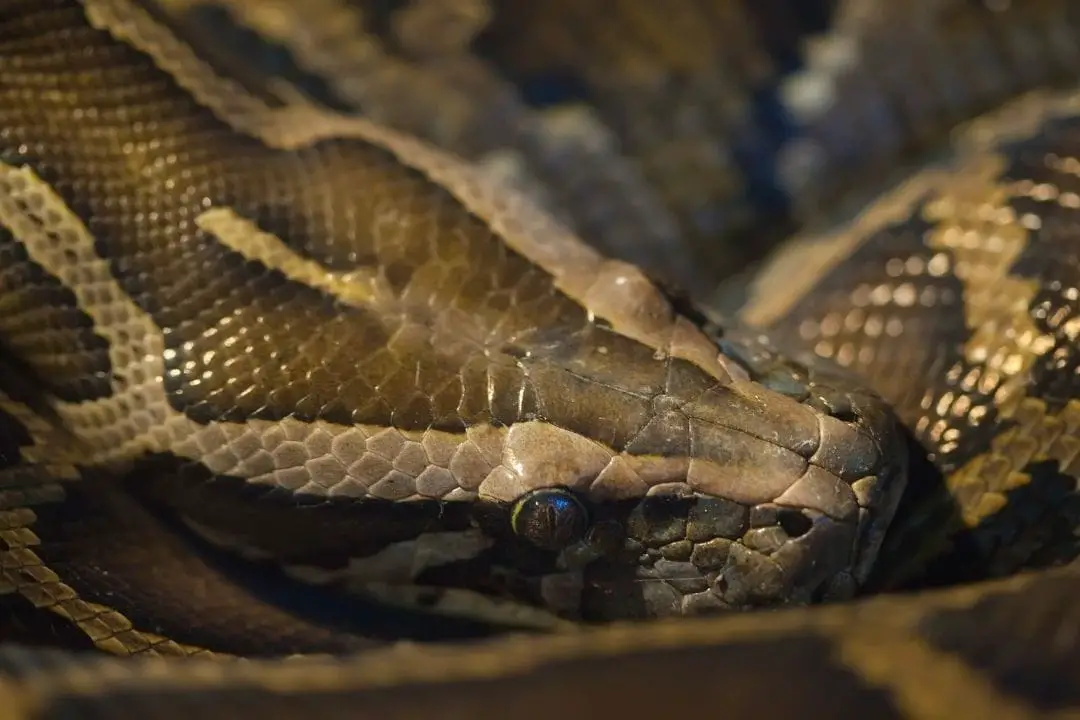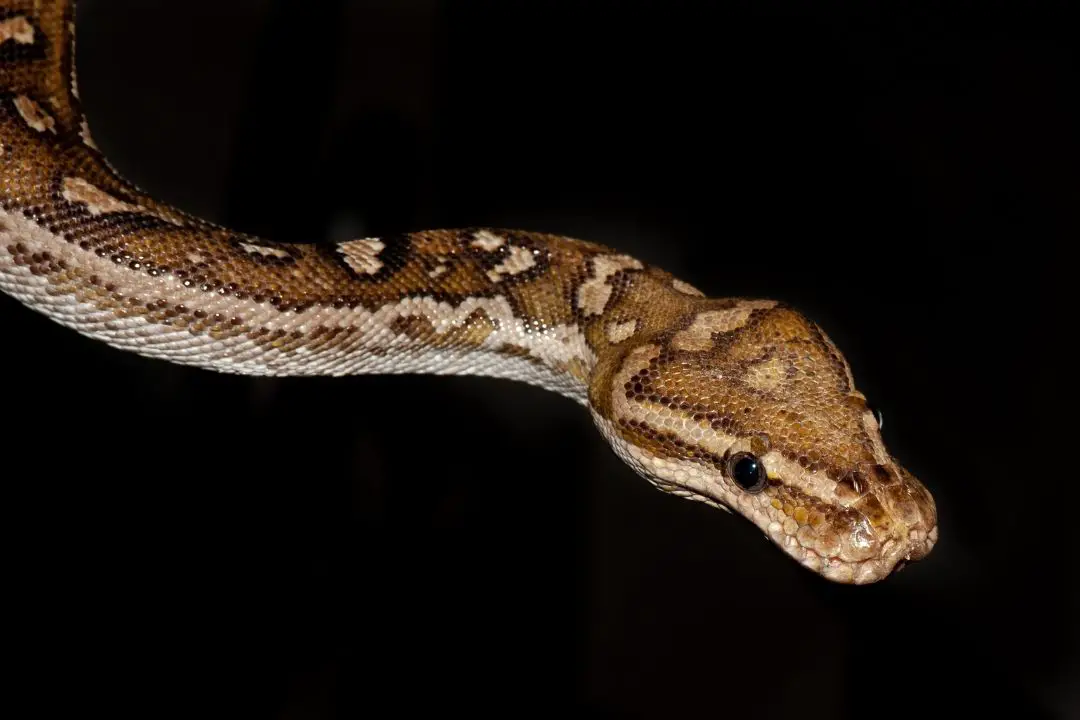The Angolan python (Python anchietae) is a beautiful snake. They are not common in captivity, but more breeders are selling the snakes as time goes on. If you are considering an Angolan python as a pet, you may be wondering:
Are Angolan Pythons Dangerous?
As a general rule, Angolan pythons are not dangerous snakes. They are fairly small snakes and are not venomous. They are no more dangerous than the related ball python.
Constrictor Snakes
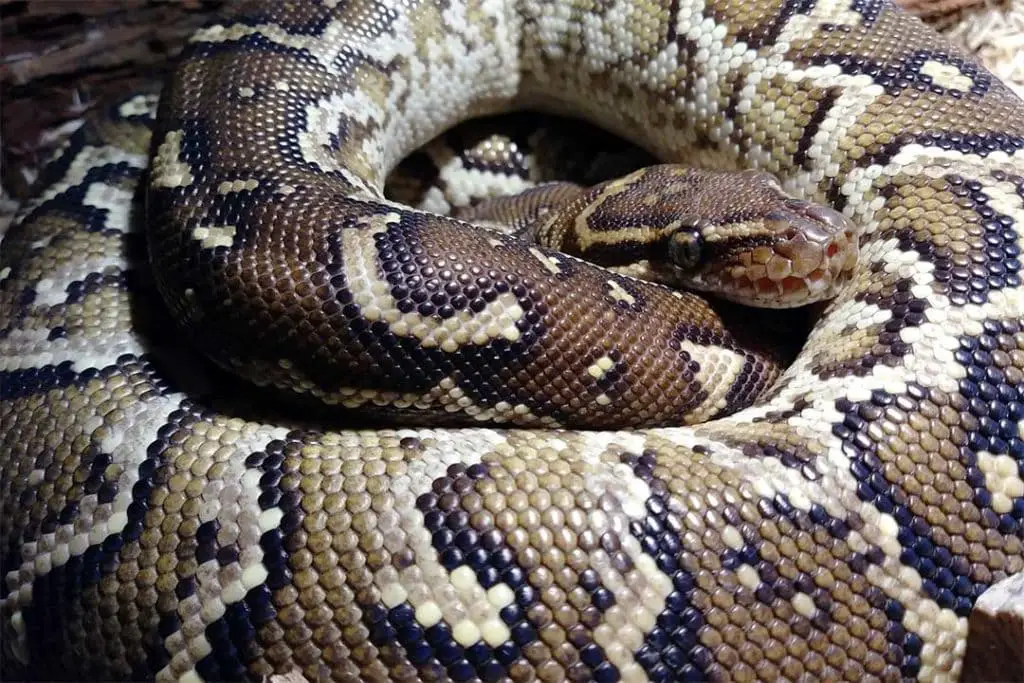
The first thing to know about Angolan pythons is that they are constrictor snakes. This means that rather than using a powerful venom to subdue prey, they use constriction. A hungry Angolan python will pick a spot and wait for prey to come by.
When something small enough to eat comes into the range of the snake, it will strike out and secure the prey by biting it. Then, the snake will loop its body around the prey and begin to squeeze.
This will cut off blood flow and cause death by interrupting the supply of blood to the brain. It kills very quickly.
This strategy works best on mammals and birds since interrupting the circulatory system will kill these animals quickly. Angolan pythons only use constriction, though they may consume live prey if there is no risk of injury like some other pythons will do.
This works best on small animals due to the small size of this python species.
Size
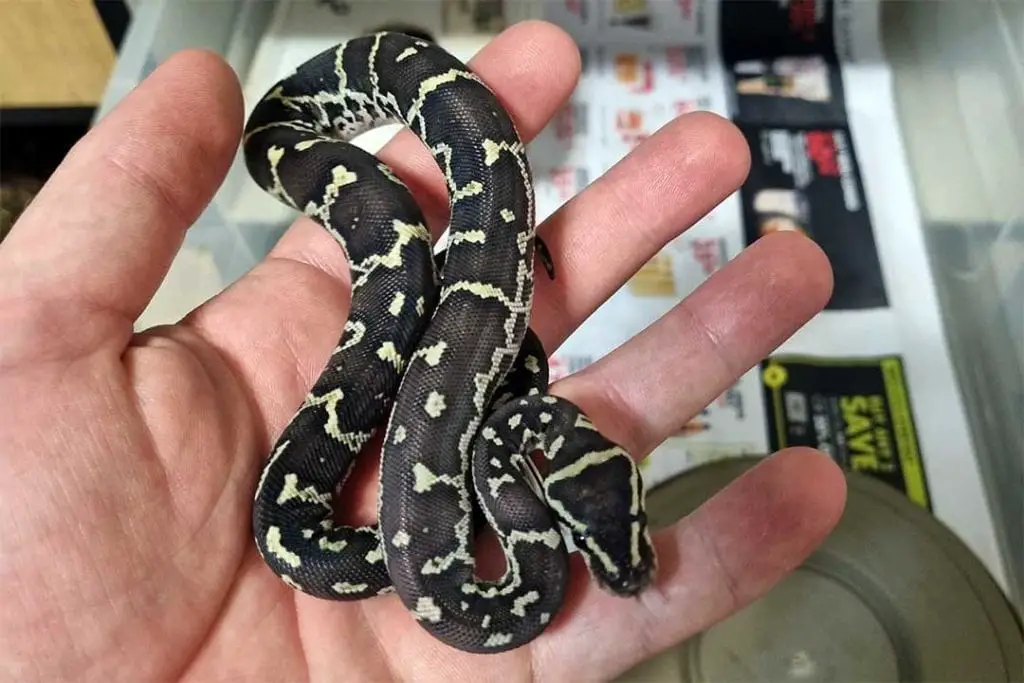
Another factor that shows whether an Angolan python is dangerous to humans is its size and its strength. While Angolan pythons are strong for their size, they max out at 6 feet long. This puts them under the size range where you may need help to handle them.
Even if your python constricts you during a bite, you shouldn’t have too much trouble freeing yourself.
Most adults with snake experience can handle an Angolan python safely so long as they understand snake behavior and body language.
Angolan pythons typically do not eat anything larger than an adult rat. Humans, even babies, are so large that they register more as threats than a potential meal.
As such, you will most likely see defensive behavior from an Angolan python if it is unfamiliar with humans. The only time you are likely to experience a feeding response is if you have the scent of prey on your hands. Make sure you wash thoroughly after handling rodents or birds.
Behavior
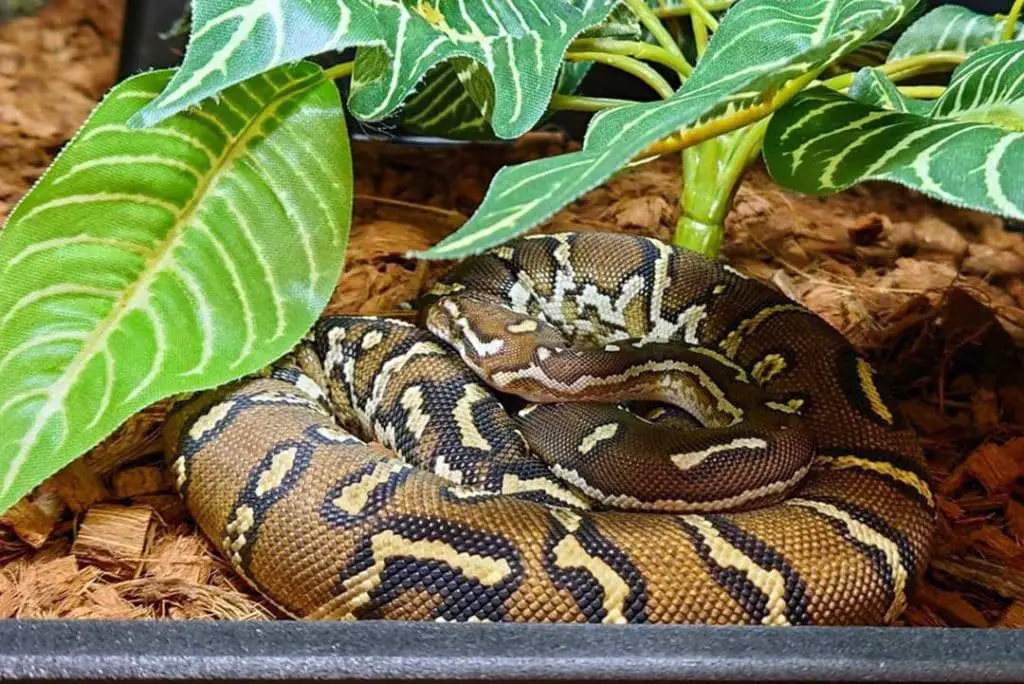
Angolan pythons are notably more likely to bite than the related ball python. Babies are well-known to be nippy compared to a ball python of a similar age and size.
Ball pythons are known for balling up when stressed. An Angolan python is much more likely to defecate or musk to drive you off. They may also strike or even bite if they feel threatened.
Babies are more likely to be defensive. They may hiss and bite, but their teeth are too small to cause much damage to an adult human even if they manage to hit an area with thinner skin like your face.
With gentle and positive handling, most Angolan pythons settle down with age. Once they know you won’t eat them, they tend to be curious and active animals that will want to explore.
If your snake is shedding, it may strike even if it is very tame. Sometimes animals also have bad days and want to be left alone. So long as your snake isn’t sick, if an adult hisses at you or makes a strike, you may be better off leaving them alone.
If you are breeding your Angolan python, the female may be defensive of her eggs. Many pythons do not want to be separated from their clutch.
You may consider leaving the eggs with her since it is unknown whether female Angolan pythons care for their clutch like other pythons.
However, she will likely be more defensive like other incubating mother pythons are. This can make cleaning up difficult.
Teeth
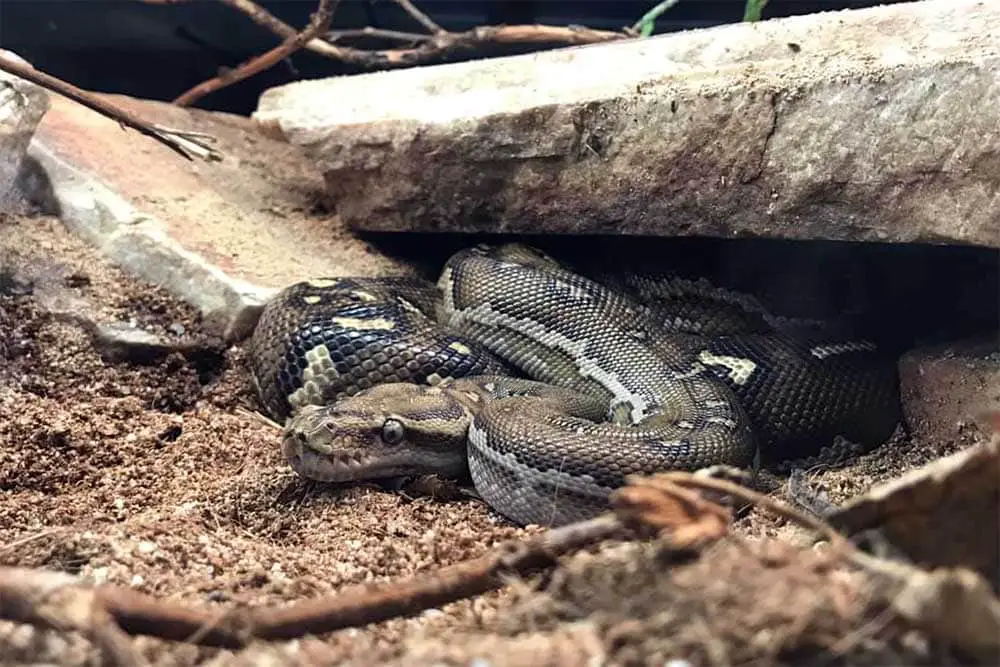
Another factor for how dangerous a snake is to humans is its teeth. Some species have very long and sharp teeth. This is not the case with the Angolan python.
The teeth of an Angolan python are similar to a ball python. While a bite from an adult can hurt and draw blood, it isn’t much more dangerous than a cat scratch.
Most damage comes from trying to pull away from a snake that is latched on. If you pull away, the skin may rip and worsen the injury. Since Angolan pythons have backward-facing teeth, pulling away from the animal will harm you and likely the snake.
If your snake bites you, pushing into the snake may make it release you. Like most snakes, they can also be convinced to release a bite by pouring cold water or mouthwash over your skin where the snake is biting you.
If you stay calm, you can keep any injury to a minimum.
Anchietae Pythons Bite Severity
Since they have small teeth, most Angolan python bites are not very severe. You may experience some bleeding or swelling in the area.
The wounds can be treated like any other scratch and rarely need stitches. Just clean and bandage any bites and you should heal just fine.
If you have pulled away, you may have a more serious wound that needs medical attention. If the bleeding seems heavy or you have deep wounds, you should get the wound checked by a doctor.
Conclusion
Angolan pythons are small constrictors that can’t cause much damage to an adult. They aren’t venomous and prefer to flee if possible.
If they do bite you, staying calm can reduce the severity of any injury and keep you and the snake safe. If you have any questions or comments, please leave them below.
